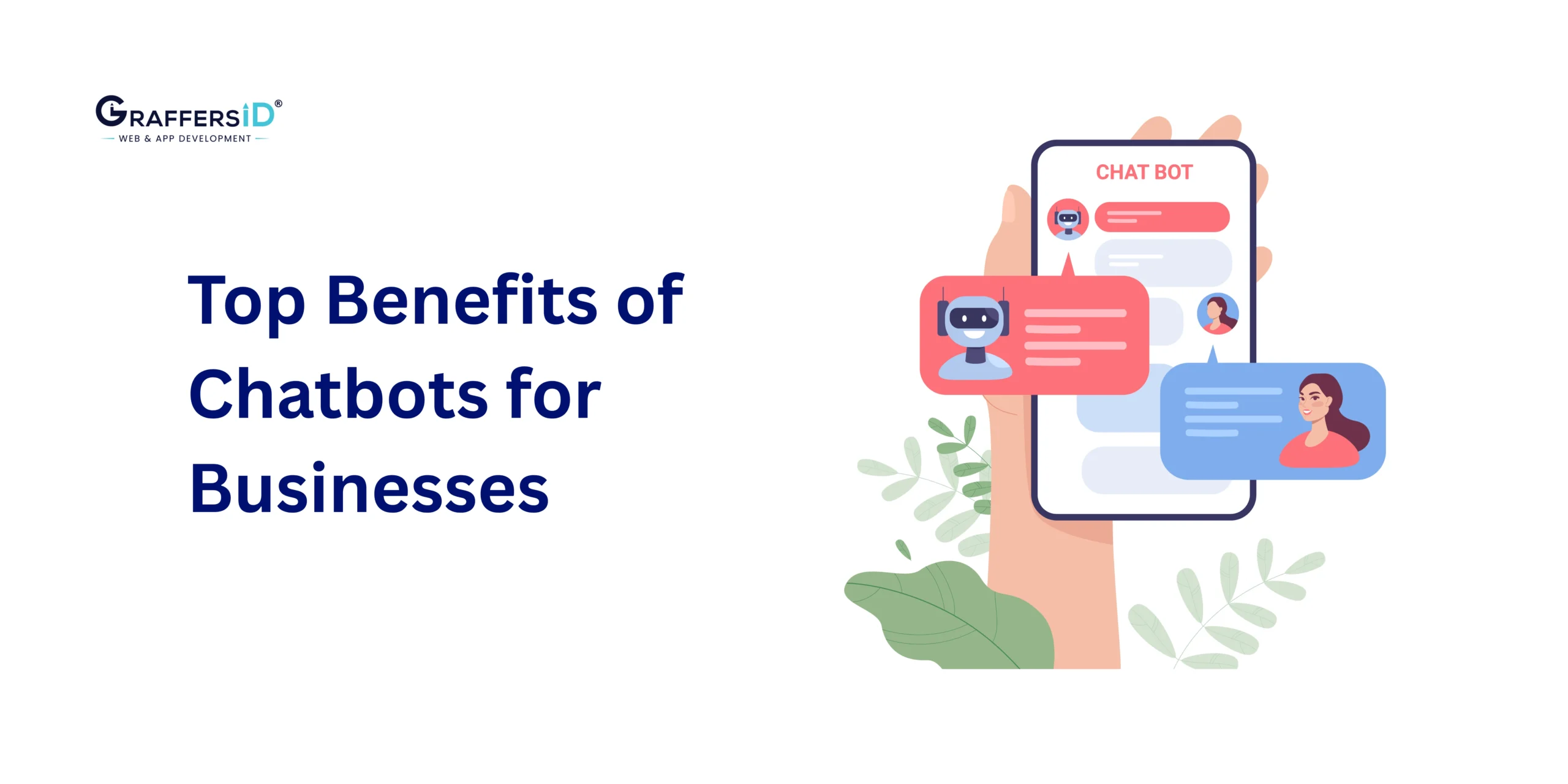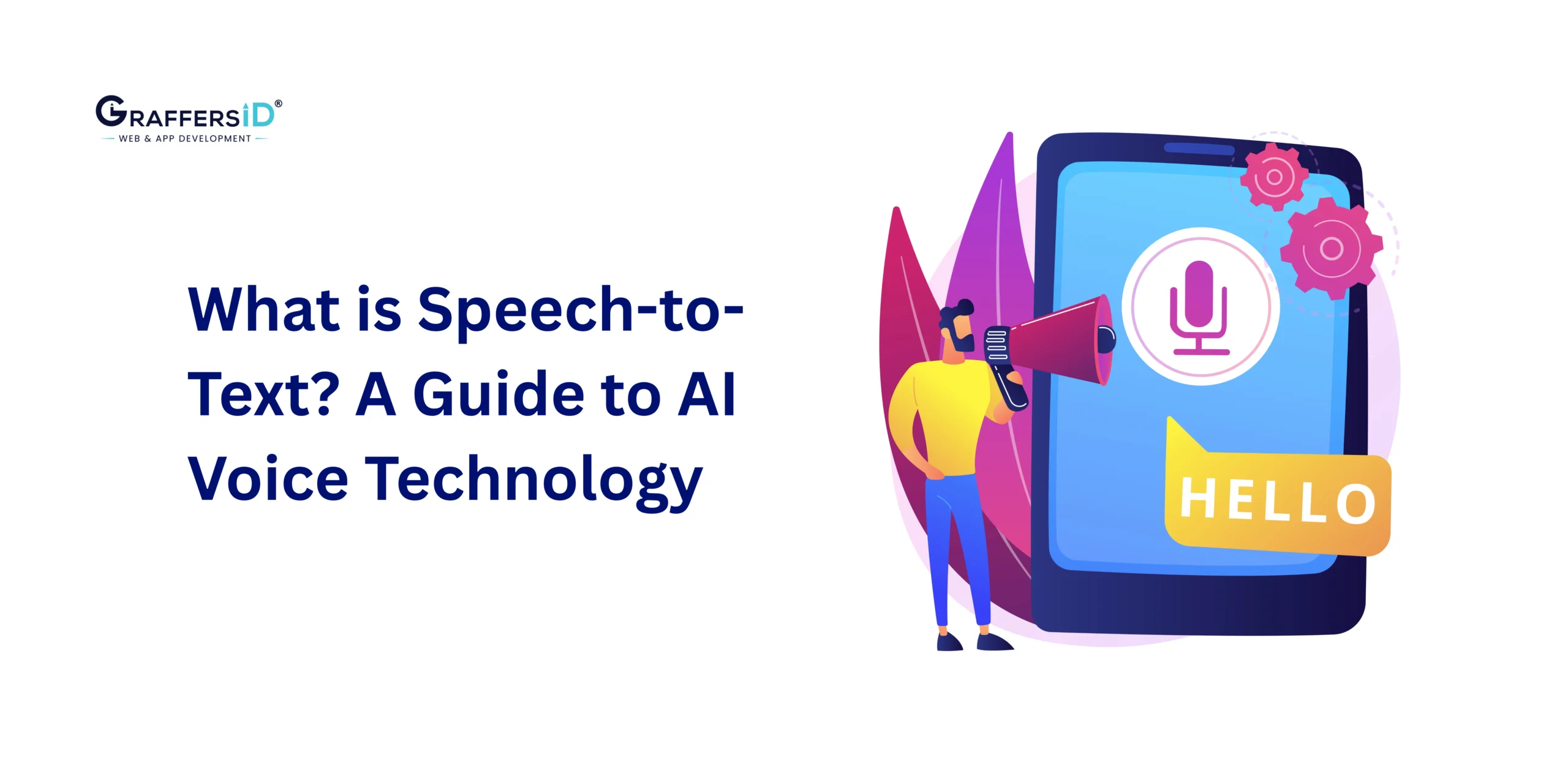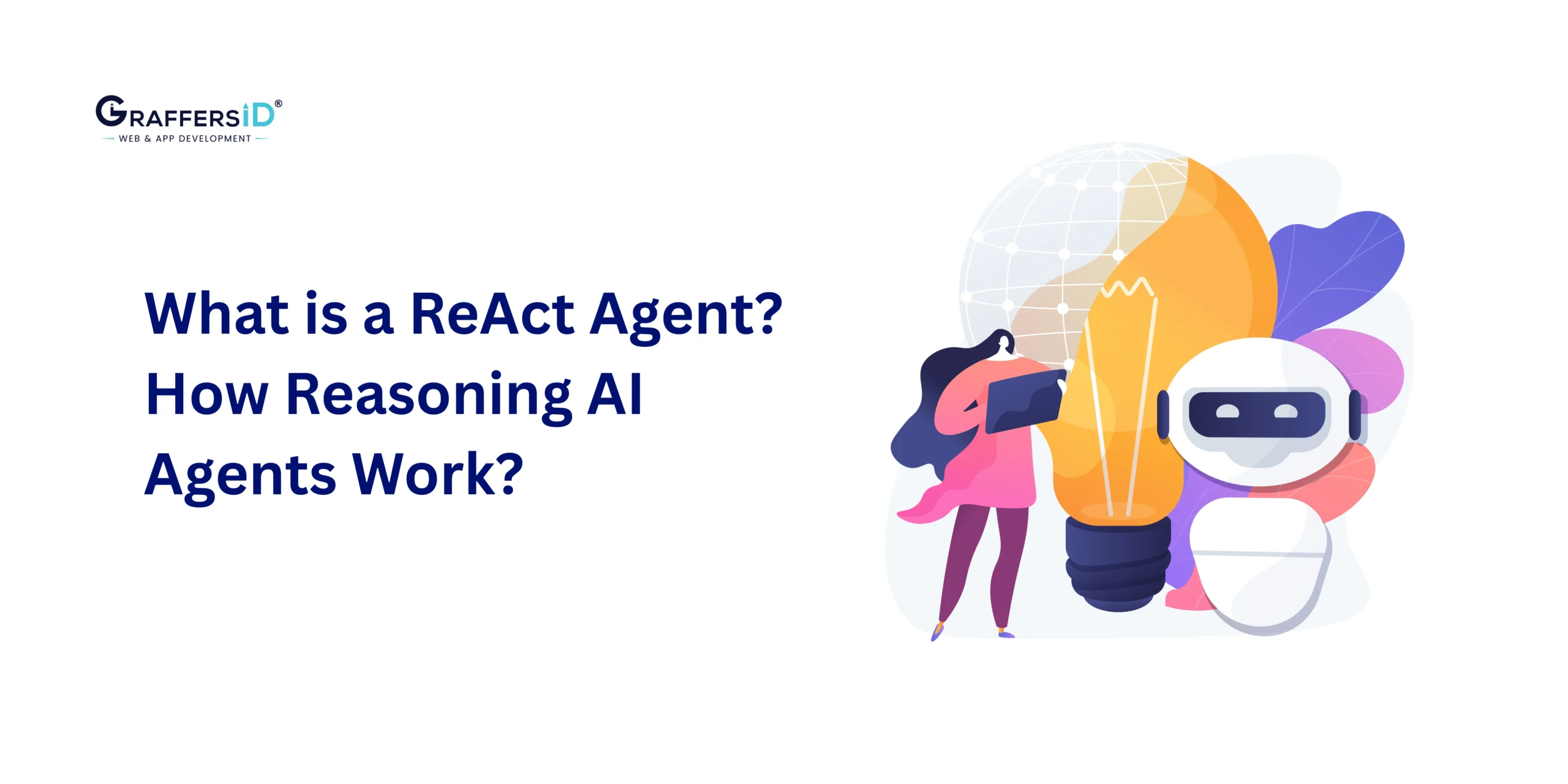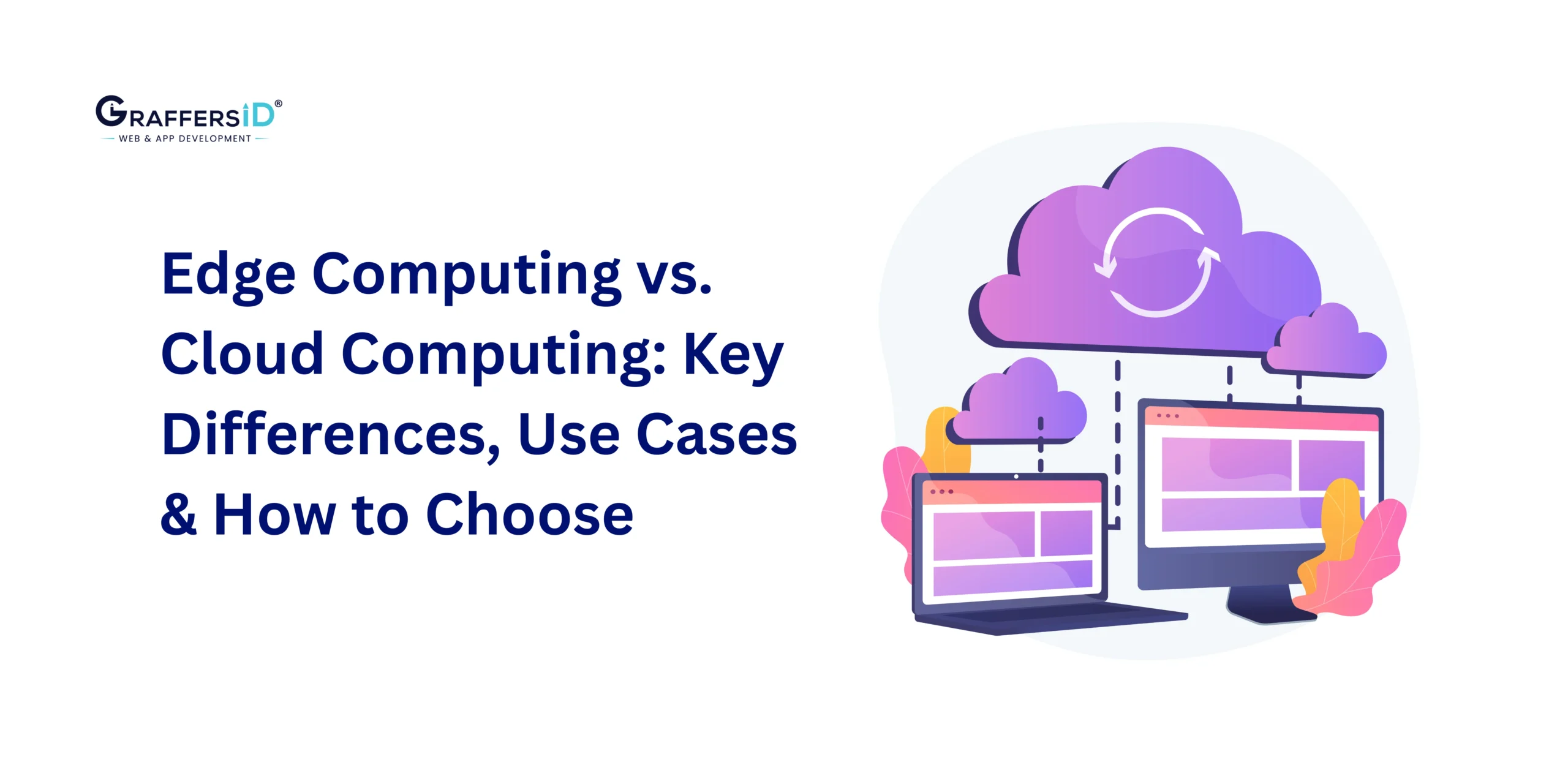In today’s fast-paced digital world, businesses are continually seeking innovative ways to enhance their customer interactions while streamlining their operations. One of the most transformative technologies in recent years is the implementation of chatbots. These automated conversational agents have revolutionized how businesses engage with customers, offering a range of benefits that positively impact both customer experience and operational efficiency. In this comprehensive guide, we’ll delve into the top five benefits of chatbots, exploring how they can be a game-changer for your business.
Trust Chatbot Like You Trust Your Car Breaks
Artificial Intelligence is growing at a high speed. It can now solve your queries in minutes via Chatbots. Chatbots are developed to communicate with people for various reasons. The benefits of Chatbots have come a long way from virtual assistants to sophisticated bots in every existing field and industry.
Ah! Are you struggling to get the basic details about Chatbots? You can find it all here.
So, now you know that a chatbot is a platform used to communicate with humans for various reasons and its types. But how many of us trust bots with our eyes closed? Not many of us, right? Chatbots are robots trained to resolve queries. So, the life of chatbots depends on us.
This article will help you understand chatbots explicitly. Trust it just like you trust your car breaks. Furthermore, there has been a study that shows that youngsters trust chatbots more than older generations. However, the other half of the youngsters is a pretty high percentage to be ignored.
Before going to the benefits of chatbots, let me tell you about two surveys. A survey conducted by HubSpot showed that 57% of interviewed people trusted humans over a Chatbot. Rest would not mind whether they are talking to a bot or a human. Another recent study conducted by Ubisend showed that 69% of interviewed people trusted chatbots over humans.
This shows a positive growth of people towards Chatbots. However, it has also been studied that trust towards bots. It depends on secure conversations and confidentiality maintained by the Chatbots.
Top 5 Benefits of Chatbots
Trust is an important factor for business. where a relationship is developed between a customer and the company. Likewise, businesses aim to ease things for their customers and potential clients using technology. Chatbots are a similar platform developed to ease the activities of both the included parties. Here are the benefits of Chatbots:-
1. 24/7 Availability and Instant Responses
In the fast-paced digital landscape, customers expect swift responses around the clock. Here’s how chatbots address this need:
Chatbots are available 24/7, ensuring that customers can get assistance whenever they need it. This availability enhances customer satisfaction by eliminating long response times and reducing frustration. With instant responses, businesses can create a positive impression and build customer loyalty.
2. Personalized Customer Experiences
Customers appreciate it when businesses understand their needs and preferences. Chatbots play a crucial role in delivering personalized experiences:
By analyzing customer data and previous interactions, chatbots can offer personalized recommendations and solutions. This not only enhances customer satisfaction but also increases the likelihood of cross-selling and upselling, contributing to higher revenue generation.
3. Efficient Issue Resolution
Timely and effective issue resolution is a cornerstone of great customer service. Chatbots excel in this aspect:
Chatbots can quickly identify common problems and provide step-by-step troubleshooting guidance. This reduces the need for customers to wait for a human agent, streamlining the support process and ensuring quicker issue resolution.
4. Scalability and Cost Savings
As businesses grow, managing customer inquiries can become overwhelming. Chatbots offer a solution:
Chatbots can handle multiple conversations simultaneously, making them highly scalable. This capability is especially valuable during peak periods when the influx of inquiries is high. By reducing the need for an extensive human support team, businesses can achieve significant cost savings.
5. Data Collection and Insights
Understanding customer behavior and preferences is essential for informed decision-making. Chatbots contribute to data collection:
Chatbots gather valuable data on customer interactions and preferences. This data can be analyzed to uncover trends, identify pain points, and make strategic business decisions that align with customer needs.
The above benefits can help you trust bots and pay attention to their positive sides.
The risk is only if the brakes fail
Where is the risk if chatbots are so secure? The risk lies with the confidentiality and privacy policy of the chatbots. People are afraid to share their personal or financial data with chatbots due to these two reasons. However, Chatbots come with added security. There are privacy policies defined by the company that take care of the customer data. These policies have a set of limitations that need to be adhered to by the operators.
Also, confidentiality is the prime area that is taken care of by the operators. The information gathered is strictly for official purposes. If any information is leaked, there are strict rules that might affect the working of the business. Moreover, we humans treat AI just as an object. This should not be the case as AI is created by humans for humans. Once we understand the importance of the system, it becomes easy for us to trust it. Some of the most trusted bots to date are Hipmunk, NatGeo Genius, Whole Foods, Baby Centre UK, Duolingo, and many more.
What can a start-up do to boost its Chatbot service?
Start-ups need to concentrate on a good chatbot model, which would help them increase their sales. Chatbots have helped many businesses to boost their client engagement and have a positive impact on their revenues.
A proven chatbot can create wonders for start-ups. Let’s see what a start-up can do to boost its chatbot service.
1. Defining the aim:
Chatbots are created for various reasons. Define your aim accurately, and you’re halfway through the entire procedure.
2. Focus on developing trust:
Training the bot in such a way that it gains the customer’s trust is the second step to a successful bot.
3. Align tone with the business category:
Each business has a different set of rules and tone. It is important to set your business tone in the right direction. This will help in increasing customer satisfaction.
4. Make them feel important:
Bots should be trained in a customer-centric way. The entire focus should be on making the customers feel that they are important to the company. This will lead to increased satisfaction, and customers will be loyal to the brand.
5. Continuous improvements:
Technology keeps on improving and bringing in advancements. Continuous improvements in chatbots can increase the curiosity factor for customers.
How do chatbots improve customer service?
In the realm of customer service, chatbots play a pivotal role in ensuring prompt and accurate assistance. They are available 24/7, providing immediate responses to customer inquiries. This real-time support enhances customer satisfaction by eliminating the need to wait for human agents, especially during peak hours.
Chatbots are adept at handling routine and repetitive tasks, such as order tracking, account inquiries, and basic troubleshooting. By offloading these tasks from human agents, companies can allocate their resources more effectively, allowing agents to focus on complex and high-value interactions.
How to Implement Chatbots Effectively
To harness the full potential of chatbots, businesses should consider the following strategies:
Define Clear Objectives
Identify the specific goals you want to achieve with chatbots. Whether it’s reducing response time or increasing lead generation, having clear objectives will guide the implementation process.
Seamless Integration
Integrate chatbots with your existing customer support systems and platforms. This ensures a seamless experience for customers transitioning from bot interactions to human agents, if necessary.
Natural Language Processing
Choose a chatbot platform with advanced NLP capabilities. This enables chatbots to understand the nuances of human language and provide contextually relevant responses.
Continuous Learning
Chatbots should be equipped to learn from each interaction. This iterative learning process helps them improve over time and provides more accurate solutions.
Some Common Concerns About ChatBots
Data Privacy
Customers may express concerns about sharing sensitive information with chatbots. Address this by implementing robust security measures and transparently communicating your data handling practices.
Lack of Personal Touch
While chatbots are efficient, some customers may miss the personal touch of human interaction. To mitigate this, ensure that your chatbots are programmed to use empathetic language and offer a seamless transition to human agents when needed.
Technical Limitations
Chatbots might not understand complex or industry-specific jargon. Train your chatbots to handle such situations gracefully and provide alternatives for customers to seek human assistance.
How do chatbots contribute to cost savings for companies?
Let’s explore how chatbots contribute significantly to cost savings for companies across various industries.
1. 24/7 Customer Support Without Human Intervention:
One of the most significant cost-saving benefits of chatbots is their ability to provide round-the-clock customer support without the need for human intervention. Traditional customer support models often require companies to employ large teams of support agents to handle inquiries, complaints, and technical issues. This not only incurs substantial labor costs but also limits support availability to specific hours.
Chatbots, on the other hand, can handle a wide range of customer queries autonomously, at any time of the day or night. By automating routine inquiries and tasks, businesses can significantly reduce the need for human agents, leading to substantial cost savings in terms of salaries, training, and overheads.
2. Efficient Lead Generation and Sales
Chatbots play a crucial role in optimizing lead generation and sales processes for businesses. They can engage with website visitors, qualify leads, provide product information, and even facilitate transactions seamlessly. This level of automation in the sales funnel not only accelerates the conversion process but also minimizes the need for extensive sales teams.
Moreover, chatbots can handle multiple conversations simultaneously, unlike human agents who are limited by their capacity. This scalability enables companies to manage a higher volume of leads and customer interactions efficiently, translating into increased revenue potential and cost savings per acquisition.
3. Streamlined Internal Operations
Chatbots are not limited to external customer-facing roles; they can also streamline internal operations within organizations. From HR tasks such as onboarding processes, leave management, and FAQs for employees to IT support for troubleshooting common technical issues, chatbots can handle a variety of internal inquiries and tasks.
By automating these internal processes, businesses can reduce administrative overheads, improve operational efficiency, and free up human resources to focus on more strategic and value-added activities. This optimization of internal workflows contributes significantly to overall cost savings and organizational productivity.
4. Personalized and Scalable Marketing
In the realm of marketing, chatbots are transforming the way businesses engage with their target audiences. Through personalized interactions based on user data and preferences, chatbots can deliver targeted marketing messages, recommend products or services, and nurture leads through automated campaigns.
This personalized approach not only enhances customer engagement and satisfaction but also optimizes marketing spend by targeting the right audience segments with relevant content. Additionally, chatbots enable businesses to scale their marketing efforts efficiently, reaching a broader audience without exponentially increasing marketing budgets.
5. Data-driven Insights for Decision Making
Another hidden cost-saving benefit of chatbots lies in the wealth of data they generate and analyze. By capturing user interactions, preferences, feedback, and trends, chatbots provide valuable insights that can inform data-driven decision-making across various business functions.
These insights empower companies to optimize processes, improve products or services based on customer feedback, identify cost-saving opportunities, and enhance overall business strategies. By leveraging data-driven insights, organizations can make informed decisions that drive efficiency, reduce waste, and maximize ROI.
Chatbots are a powerful tool for businesses seeking to achieve cost savings, improve operational efficiency, and deliver superior customer experiences. By automating tasks, optimizing workflows, and leveraging data-driven insights, chatbots contribute significantly to the bottom line while enabling companies to stay competitive in today’s dynamic business landscape. Embracing chatbot technology is not just about adopting a trend; it’s about embracing a strategic imperative for sustainable growth and success.
How Various Industries Can Leverage Chatbots for Maximum Benefit
Chatbots, once a novelty, have now become a strategic tool for businesses across various industries. Their ability to engage with customers, streamline processes, and provide round-the-clock assistance makes them invaluable assets. Let’s delve into the industries that can reap significant benefits from implementing chatbots and explore how these intelligent systems are revolutionizing customer interactions and operational efficiencies.
Retail and E-commerce:
Chatbots in retail can provide personalized product recommendations based on customer preferences and purchase history.
They can assist with order tracking, refunds, and exchanges, improving customer satisfaction and reducing support ticket volumes.
Integration with inventory systems enables real-time stock updates and helps manage product availability more efficiently.
Hospitality and Travel:
Chatbots in the hospitality sector can handle booking inquiries and room reservations, and provide information about amenities.
They can offer personalized travel recommendations, suggest local attractions, and assist with itinerary planning.
During peak booking periods, chatbots can handle a large volume of queries simultaneously, reducing wait times for customers.
Healthcare:
In healthcare, chatbots can schedule appointments, send medication reminders, and provide basic medical advice based on symptoms.
They streamline patient registration processes and can conduct preliminary assessments, aiding in triaging cases.
Chatbots also contribute to patient engagement by offering support and answering frequently asked questions about healthcare services.
Banking and Finance:
Chatbots in banking facilitate balance inquiries, fund transfers, and bill payments, and can provide account statements on request.
They enhance security by offering two-factor authentication and alert notifications for suspicious transactions.
Personal finance chatbots can offer budgeting tips, investment advice, and help users track their expenses.
Education:
Educational institutions can use chatbots for admissions inquiries, course registrations, and providing academic information to students.
Chatbots can create interactive learning experiences through quizzes, flashcards, and personalized study plans.
They serve as virtual tutors, answering students’ questions and providing explanations on various topics.
Real Estate:
Chatbots in real estate can assist with property searches, schedule property viewings, and provide details about listings.
They can answer questions about neighborhoods, property prices, and mortgage options, guiding potential buyers through the purchasing process.
Integration with CRM systems helps agents manage leads more effectively and prioritize follow-ups.
Customer Service and Support:
Across all industries, chatbots play a crucial role in customer service by offering instant responses to common queries.
They can escalate complex issues to human agents while handling routine tasks such as order tracking, FAQs, and troubleshooting.
Chatbots contribute to a seamless omnichannel support experience, integrating with email, social media, and other communication channels.
Automotive:
In the automotive industry, chatbots can assist with scheduling vehicle services, providing maintenance tips, and troubleshooting common car problems.
They can also facilitate the car buying process by answering questions about models, features, and financing options.
Chatbots improve customer retention by sending service reminders, notifying about recalls, and offering post-purchase support.
Chatbots are versatile tools that can adapt to diverse industry needs, enhancing efficiency, improving customer experiences, and driving business growth. As technology continues to evolve, the capabilities of chatbots will expand further, making them indispensable partners in the digital transformation journey across various sectors.
What types of services can chatbots provide beyond customer support?
They streamline interactions, provide quick responses, and enhance user experience. However, their capabilities extend far beyond this singular role. Today, we delve into the diverse services chatbots can provide beyond customer support, showcasing their versatility and potential across various industries.
Information Retrieval:
Educational Chatbots: Chatbots can act as virtual tutors, helping students with study materials, answering queries, and providing interactive learning experiences.
Knowledge Base Assistants: Within organizations, chatbots can retrieve information from vast databases, assisting employees with quick access to policies, procedures, and company knowledge.
Appointment Scheduling:
Healthcare: Chatbots can schedule appointments with healthcare providers, send reminders, and even assist in telemedicine consultations, improving patient care efficiency.
Service Industries: From salon appointments to car servicing, chatbots streamline scheduling processes, reducing wait times and enhancing customer convenience.
E-commerce Assistance:
Personalized Recommendations: Chatbots analyze user preferences and buying behavior to offer tailored product recommendations, mimicking personalized shopping experiences.
Order Tracking and Updates: Customers can receive real-time updates on their orders, including tracking information and delivery status, enhancing transparency and trust.
Financial Guidance:
Budgeting Assistants: Chatbots can help individuals manage their finances by providing budgeting tips, tracking expenses, and offering investment advice based on predefined parameters.
Banking Services: From balance inquiries to fund transfers, chatbots automate routine banking tasks, freeing up human agents for more complex inquiries.
Travel Planning:
Itinerary Management: Chatbots assist travelers with itinerary planning, suggesting activities, restaurants, and attractions based on their preferences and budget.
Flight and Hotel Bookings: Users can book flights, hotels, and rental cars directly through chatbots, simplifying the travel booking process.
Language Translation:
Multilingual Support: Chatbots equipped with translation capabilities bridge language barriers, enabling seamless communication between users speaking different languages.
Cultural Insights: Beyond translation, chatbots can provide cultural context and etiquette tips, enhancing cross-cultural interactions.
HR and Recruitment:
Candidate Screening: Chatbots can conduct preliminary interviews, assess candidate qualifications, and schedule interviews with human recruiters, expediting the hiring process.
Employee Onboarding: New hires can receive onboarding information, complete forms, and ask HR-related questions through chatbots, easing their transition into the organization.
Health and Wellness:
Fitness Coaching: Chatbots offer personalized fitness plans, track progress, and provide motivational messages, serving as virtual fitness coaches.
Mental Health Support: Chatbots equipped with AI-driven emotional intelligence provide non-judgmental listening, coping strategies, and mental health resources.
Legal Assistance:
Legal FAQs: Chatbots can address common legal questions, provide basic legal advice, and guide users through legal processes such as drafting simple contracts.
Document Preparation: Chatbots assist in preparing legal documents, ensuring accuracy and compliance with legal standards.
Entertainment and Gaming:
Interactive Storytelling: Chatbots engage users in interactive storytelling adventures, responding dynamically to user inputs and choices.
Game Assistance: In gaming, chatbots offer hints, tips, and gameplay strategies, enhancing the gaming experience for players.
The evolution of chatbots from simple text-based responders to intelligent, multi-functional assistants has opened up a world of possibilities across industries. Their ability to automate tasks, provide personalized experiences, and improve efficiency makes them invaluable assets for businesses and individuals alike. As technology continues to advance, we can expect chatbots to play an increasingly integral role in shaping the future of human-computer interactions.
Conclusion
The benefits of Chatbots are a boon for customers and businesses, with equal positive sides. Therefore, trusting them may seem challenging at the moment. But once you start trusting this advancement, you will always look for a chatbot over any other option.
Start-ups are always in a money crunch. Chatbots can help them save a lot of money and invest it in something more important. The decision to develop a chatbot can help start-ups is increasing:
- Client engagement;
- A high number of leads;
- Increased revenues;
- High conversion rate.
Explore chatbots and build one that matches your needs. Experience wonders happening with your business. Meanwhile, do not forget to post your views below in the comments section.





